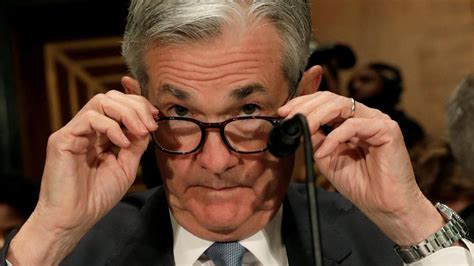This blog is not about the poor Russian parents whose sons are being sent to face a skilled fighting force, trained and supplied by NATO. Many are dying as cannon fodder in a war created to steal a large proportion of the world’s agricultural and energy commodities. No. This week details why we have been reluctantly conscripted into the battle to ease inflation.
A Gut-Wrenching Period
Today is Friday 13th. Instead of witnessing more investment losses this week, the UK and European markets are up. It’s far too early to suggest the week will end on a higher note as the mighty US markets have yet to open, but currently in out of hours trading, there is a suggestion they will at least start higher. However, the markets in May so far have suffered significant falls on a daily basis, with just the odd glimmers of hope every three or four days.
Why Did It All Go Wrong This Week?
Basically there is a war going on, fought by the central banks as they try to bring down significant levels of global inflation. It was Jay Powell’s turn to increase rates in the US, which of course he did on the 4th May. It wasn’t that rise that crashed markets, it was his subsequent comments that surfaced later, along with an understanding that it was open season on investors around the world.
The Federal Reserve Bank operates a dual mandate
- to maintain maximum employment.
- to keep prices stable while keeping long-term interest rates at moderate levels.
The Bank of England has a single mandate
- only has to keep prices low and stable.
Obviously both of them are not keeping prices stable, neither are most developed central banks, because much is out of their control as energy prices spike externally. Energy is a constituent in all we eat, all we buy as well as all we transport. Putin has made matters dramatically worse and hit all the consumers of the world with increased energy prices. Why wouldn’t he, energy sales fund his regime of bullying.
But we must go back further to seek the causes of current high inflation. It was global governments’ fiscal reactions to Covid-19 that has put us all in this uncomfortable position today. This blog is to observe and educate, it certainly isn’t here to lay blame since most governments all did the same. But flooding the world with trillions of cash by turning on the magic money tree does seem to usually end in tears somewhere down the road. I have said in previous blogs that history books will describe this period in the future as a political crisis rather than a medical crisis. The WHO now estimate around 15 million of the global population died, not from, but as a result of Covid-19. 15 million deaths (and counting albeit at a slower rate now) out of a global population of almost now 8 billion, could be described as a drop in the ocean. It has hardly made a dent on the global populations continued growth. I apologise here, to anyone who has lost a loved one to Covid-19, particularly in those cases where it wasn’t expected.
Theory states that injections of capital into an economy are useful tools for governments to employ when businesses and consumers are under pressure. So called “priming the pumps” until the economy picks up again. The hard bit is reeling in that money without causing a recession.
The World Is Now Heading Into Global Recession
Covid caused feast and will cause famine. All the trillions pumped in found new homes. As always those who received the much needed hand-outs spend the money to keep eating and to pay the bills – value was added to many businesses who supply consumers. Those who didn’t need the money invested it. They paid down debt, moved home, spent money on their existing home, changed cars – all investments in their own right. Home values shot up, second hand car values shot up (due to the chip shortages post Covid breaking supply chains for new vehicles) and our investments also shot up. Hence, the highest inflation numbers most individuals born in the last 30 or 40 years have ever seen. Have we all bought something where we know we paid too much but still did it anyway? Being prepared to pay more causes prices to rise, we are all guilty of driving up prices.
Interest Rate Rises Are A Blunt Tool
Many of us can look at the recent rise in interest rates and shrug it off. Many homeowners with a mortgage are currently in fixed rates these days so there are no immediate problem. Many others have no mortgage on their properties so there is no change for them either. I believe myself and most of my clients are in this position. Higher interest rates mean we may at last see a return on our cash, although it will never compensate us for the rise in prices.
The cost of living crisis – you don’t mean me do you?
Follow The Money
How does a central bank stop individuals from spending money when they are pretty much ambivalent to rises in interest rates? It hits them where it hurts, so they will slow down or stop spending and prices naturally will fall as demand ebbs away. It is a well known fact that 75% of developed nations’ wealth is held by the 55 plus age group. It is no surprise therefore that most of the client wealth we manage is held by this cohort of individuals. It is understandable why the markets have been deliberately crashed by suggesting lots of future interest rate rises. The FED in particular has threatened future rises of 0.75% at a time, which has crashed the market. Powell has particularly hit out at those with the biggest buying power to ensure they too are conscripted into the fight to reduce inflation.
There Must Be A Safe Haven
- Currently I’m afraid the answer is there just isn’t. Good companies, bad companies and average companies have not changed what they do but their prospects have been marred by the understanding we are headed for a global recession, probably in 2023.
- Usually fixed interest investments rise when shares fall. Not this time, they have suffered un-precedented losses of over 20% since the start of the year, which is particularly unsavoury for those investors who barely receive 2% per annum in the good times!
- Bank deposits sentence the holders to negative real returns after inflation. Cash is worth 6% less than it was last year at this time with next to nothing to show for it.
- Obviously the outrageous price of second hand cars already seems to be on the wane.
- The next victim I’m afraid will be stagnating and reducing property prices.
We don’t fret daily about the value of our house, yet some of us fret daily about the value of our life-savings.
Mark To Market
The value of real assets like cars and houses, fluctuate all of the time, we just don’t see that fluctuation unless we are dealers. We come across the differences in value only when we mark our price to the market price – meaning we occasionally sell one for the best we can get or buy one for the least we can hope for. The rest of the time we have no idea of their true value. Why should we look daily, when houses in particular are bought for the long term?
There is obviously a lesson to be had here. We don’t fret daily about the value of our house, yet some of us fret daily about the value of our life-savings which in many cases are with us longer than any individual property. I know this is a distressing period for some, so I’m not going to be as shallow as to say “Just don’t look at your balances daily”, but if these are life savings perhaps you should treat them long-term like the value of your home.
If In Doubt – Zoom Out
We have added to our website the long term performance charts and the objectives of each of our managed portfolios. Zooming out and looking long-term helps to calm our short term jitters. Look at the menu at the top of every page, you can find the pages under the Our Performance tab. I hope you start to visit these pages regularly, they are updated at the end of each month. I’m sure you will see that these poor market conditions, for us and for many of our clients, isn’t our first rodeo and I’m afraid it certainly won’t be our last. That is the deal we sign up to when we invest. Fluctuation.
Surprises To The Upside
My last blog suggested there could be better times ahead perhaps. Well it hasn’t happened in May so far has it! The pendulum always swings too far though, there is nothing unusual about that. Price recoveries do start very quickly and mustn’t be missed, as the starts contain some of the biggest up days of all time. Hence we must stay invested however painful it currently seems.
Many believe Jay Powell is “jaw-boning” inflation down. A credible threat of a recession-bearing series of 0.75% interest rate rises, is enough in itself to bring down markets and bring the largest spending cohort on the planet into line. Just his words, not his actions have sent markets in a tailspin and made consumers think twice as our wealth balance depreciates.
However we must remember the dual mandate the FED is saddled with and that includes maintaining maximum employment. If a recession does arrive he will have failed one half of his mandate by “over-fixing” the other half. How far will he go if it causes mass un-employment?
Savers like us have been reluctantly conscripted into this battle against inflation, where causing a market correction with just words has reduced our savings and our therefore our confidence to spend. Probably without our life savings falling in value, many of us would have carried on regardless.
Recession is already fully factored into share prices now and usually share prices start to rise again before the actual recession starts. Nobody will ever wave the flag suggesting now is the perfect time to return to the markets.
But what if a recession is actually avoided by the central banks not pushing interest rates too far – too fast? The credit markets are still pricing in 10 year interest rates at 3%. Words alone have crashed markets and trimmed consumption. Will the future higher interest rates now be needed? If not the recovery can commence as soon as some of the higher inflation months are removed from the calculation.
That leads me to how inflation is calculated. I will leave that for my next blog.
As always we are here if you need a chat.


I was always under the impression that the money printing for the Covid response was just an extension of the money printing from 2008.
I’m distinctly more pessimistic about inflation going forward.